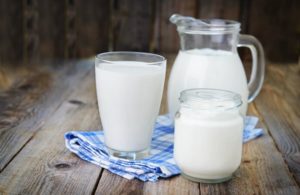
Ukraine’s parliament on November 12 passed at first reading bill No. 2240 settling the issue of amber production, which envisages the introduction of unified licenses for exploration with the right to produce amber during the period of five years for the sites up to 10 ha sold at electronic auctions on the ProZorro platform.
A total of 342 MPs backed the document.
According to the bill, access to amber deposits will be regulated by establishing the right of land easements and the definition of separate Article 971 of the Land Code for the exploration and mining of amber deposits on disturbed lands.
In addition, the document introduces criminal liability for illegal mining and administrative liability for violation of mining requirements, as well as toughens liability for non-compliance with land reclamation requirements and the obligation to compensate for losses incurred.
According to the Ministry of Energy and Environment Protection, the bill also removes a number of duplicate and archaic approvals for amber deposits (in particular, mineral titles and permission to remove the fertile layer) and introduces the filing of all documents in electronic form through an electronic account.

JTI Ukraine, a large tobacco company, after a meeting with Ukrainian President Volodymyr Zelensky and ministers on Thursday has said that it resumes production at its factory in Kremenchuk (Poltava region) following the similar announcement made by British American Tobacco Ukraine.
“After yesterday’s fruitful meeting with the President of Ukraine, we decided to fully resume production of cigarettes at the Kremenchuk factory. From Monday, November 11, the JTI Ukraine factory will resume production at all lines,” Director Corporate Affairs at JT International Ukraine Gintautas Dirgela told Interfax-Ukraine on Friday.
As reported, British American Tobacco Ukraine after a meeting with Zelensky and ministers on November 7 has announced the resumption of production at the B.A.T.-Pryluky plant (Chernihiv region), starting from November 8, 2019.
“We heard words of support and assurances about an early solution to the problem that has damaged our industry and the country’s economy as a whole. Therefore, despite some uncertainty about the fate of bill No. 1049, but relying on the president’s guarantees, we plan to gradually restore production in Pryluky, starting as early as November 8, 2019,” the company said in the statement.
British American Tobacco Ukraine on October 11, 2019 stopped production at B.A.T.-Pryluky plant. The company explained its decision by the adoption by the Verkhovna Rada of bill No. 1049 with the norm on the state regulation of the trade margin on cigarettes. Then the company turned to the State Fiscal Service to withdraw 25 million excise stamps and return UAH 505 million paid for them.
JTI Ukraine, one of the largest tobacco companies in Ukraine, on October 22 said that it refused to pay for 16 million excise labels worth UAH 350 million in connection with the reduction of production over the adoption of bill No. 1049 containing a requirement of regulating the cigarette markup. The company cut production by 73% compared with its plans in the second half of October.
Earlier Philip Morris Ukraine, British American Tobacco, JTI and Imperial Tobacco in Ukraine are mulling the possibility of decreasing production and later closing the tobacco factories on the territory of Ukraine over the adoption of the legislative requirement on the government regulation of markup on their goods by the Verkhovna Rada.
Bill No. 1049, passed at second reading, introducing a single account for paying taxes and duties, the single social security contribution, sets a fixed markup for wholesale and retail traders of tobacco products at 7% and 13% of the maximum retail price per package.

State-owned enterprise (SOE) Skhidny (Eastern) Mining and Processing Plant (Dnipropetrovsk region) in January-September 2019 cut production of uranium concentrate by 14.9% year-over-year, to 684.8 tonnes, according to information on the unified government portal of open data.
According to the enterprise, 72.6 tonnes of uranium concentrate were produced in January, 93.7 tonnes in February, 84.3 tonnes in March, 72.9 tonnes in April, 52.2 tonnes in May, and 80 tonnes in June, in July – 72.2 tonnes, in August – 84 tonnes, and in September – 72.9 tonnes.
As reported, Skhidny Mining in 2018 increased the production of uranium concentrate 41.1% compared to 2017, to 1,179.5 tonnes.
Skhidny Mining is the only uranium ore mining and processing enterprise in Ukraine and the largest in Europe. The annual needs of Ukrainian nuclear power plants for uranium concentrate are about 2,400 tonnes, while its production by Skhidny Mining is about 1,000 tonnes.

Kyivsky cardboard paper mill (Obukhiv, Kyiv region), a leader in Ukraine’s pulp and paper industry in terms of production and sales, saw a 1.8% rise in production of goods in money terms in January-September 2019 year-over-year, to UAH 4.139 billion, according to the Ukrpapir association.
Corrugated packaging output fell by 1.7%, to 172.64 million square meters, retaining the second highest result among producers of corrugated packaging in Ukraine after Rubizhne cardboard packaging mill in Luhansk region (with Trypilsky packaging plant).
Production of cardboard decreased 4%, to 149,170 tonnes. Production of package cardboard alone grew by 2.7%, to 108,590 tonnes, while box cardboard output fell by 18.5%, to 40,580 tonnes.
Production of base paper (for sanitary products) stood at 61,140 tonnes, which is 3.8% up year-over-year. Toilet paper output rose by 4.3%, to 330.4 million rolls.
Kyivsky cardboard paper mill is one of the largest cardboard and paper producers in Europe. It employs almost 2,200 people. It sells produce to almost 700 companies in Ukraine, some CIS member states and the rest of the world.

State-owned enterprise Artyomsol (Donetsk region) produced over 1.48 million tonnes of salt in January-September, which is 2.6% more than a year ago.
According to the report on the website of the state-owned enterprise, from the beginning of the year, Artyomsol produced 338,500 tonnes of bulk milled salt, which is 20.7% higher than in January-September 2018.
The output of salt packaged in flexible containers increased 13%, to 49,300 tonnes, salt blocks – by 15%, to 2,300 tonnes.
At the same time, according to the information of the SOE for the first nine months of this year, the production of packaged salt decreased by 8.9%, to 134,700 tonnes. Production of salt packed in bags was less than 4.9%, salt briquettes – 18.7% compared with the same period a year earlier. In addition, iodized salt production was 13.1% less (only 41,700 tonnes).
The state-owned enterprise said that 763,100 tonnes of salt were shipped to foreign consumers in January-September 2019, which is 8% more compared to the same period in 2018.
Hungary, Poland, Slovakia, and Romania remain the main importers of Artyomsol products.
“The results of the enterprise’s work were significantly affected by the steadily increasing cost of transportation of goods by rail by Ukrzaliznytsia. This factor reduces the competitiveness of salt of the Ukrainian producer,” the company said.
Artyomsol is the largest enterprise for extraction and sale of sodium chloride (NaCl) in Central and Eastern Europe. Its production facilities are located in Soledar (Donetsk region). The company exports products to 15 countries.

Milk production in Ukraine in January-September 2019 decreased by 3.5% compared to the same period in 2018, to 7.61 million tonnes.
According to the State Statistics Service, in January-September 2019, farmers produced 2.42 million tonnes of meat (live weight), which is 6.4% more than in the same period of 2018.
Egg production grew by 4.3%, to 13.02 billion units.